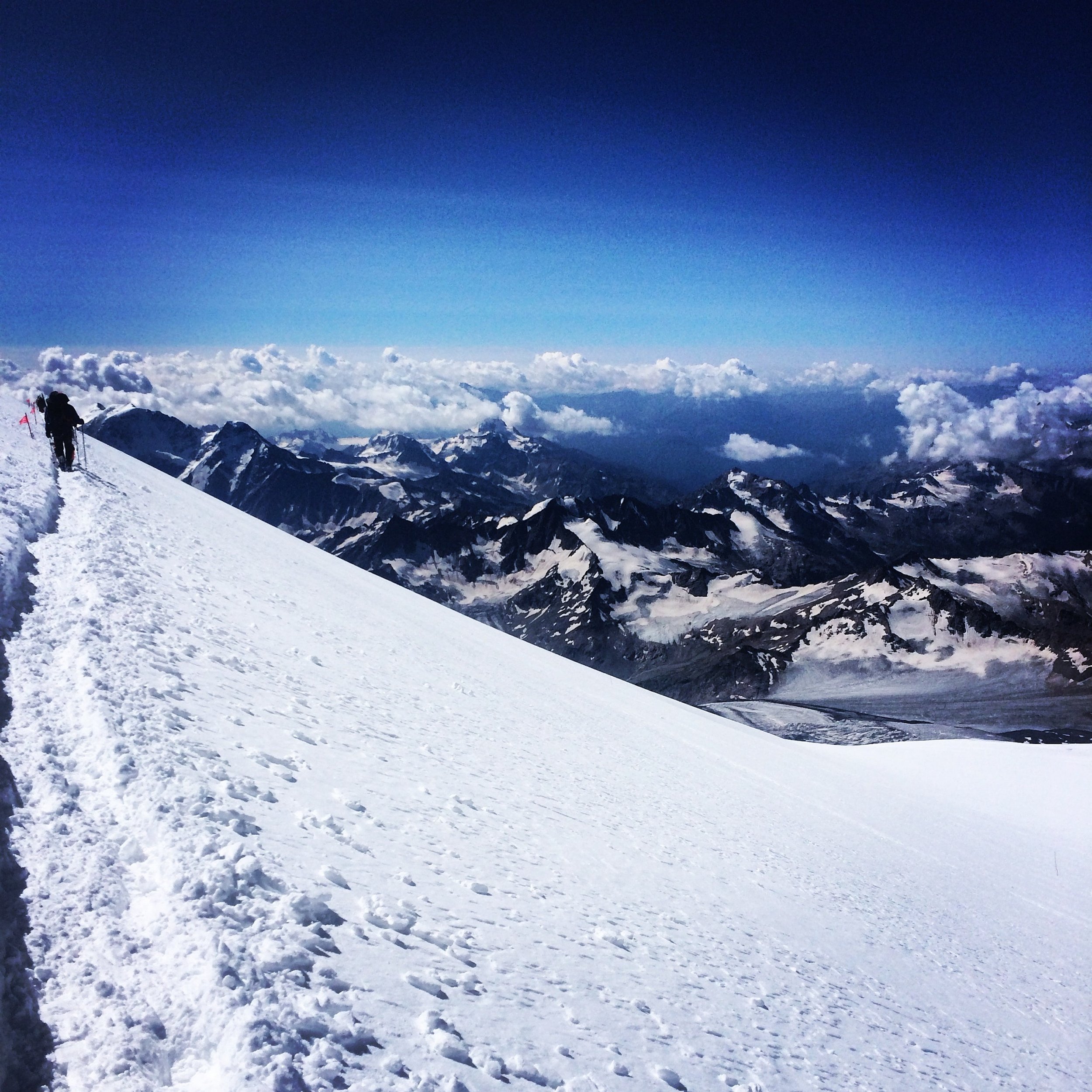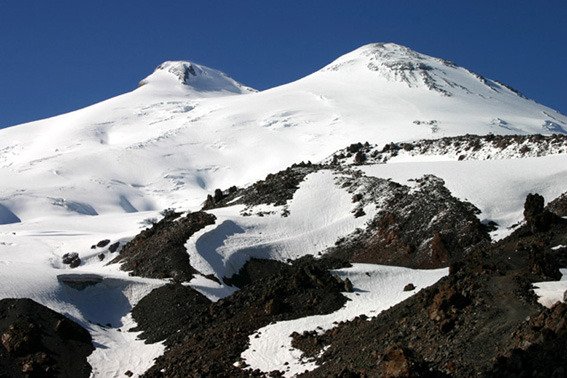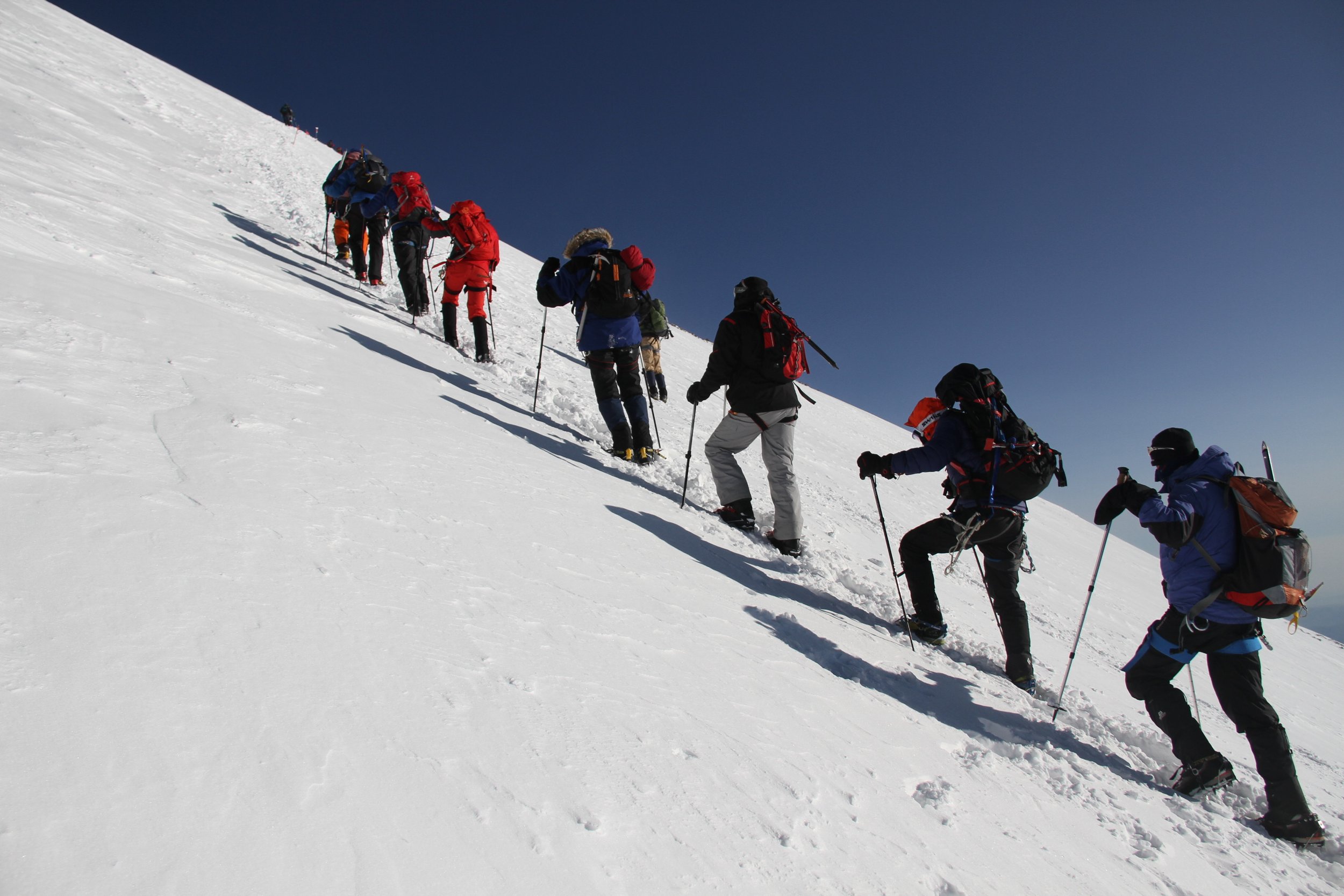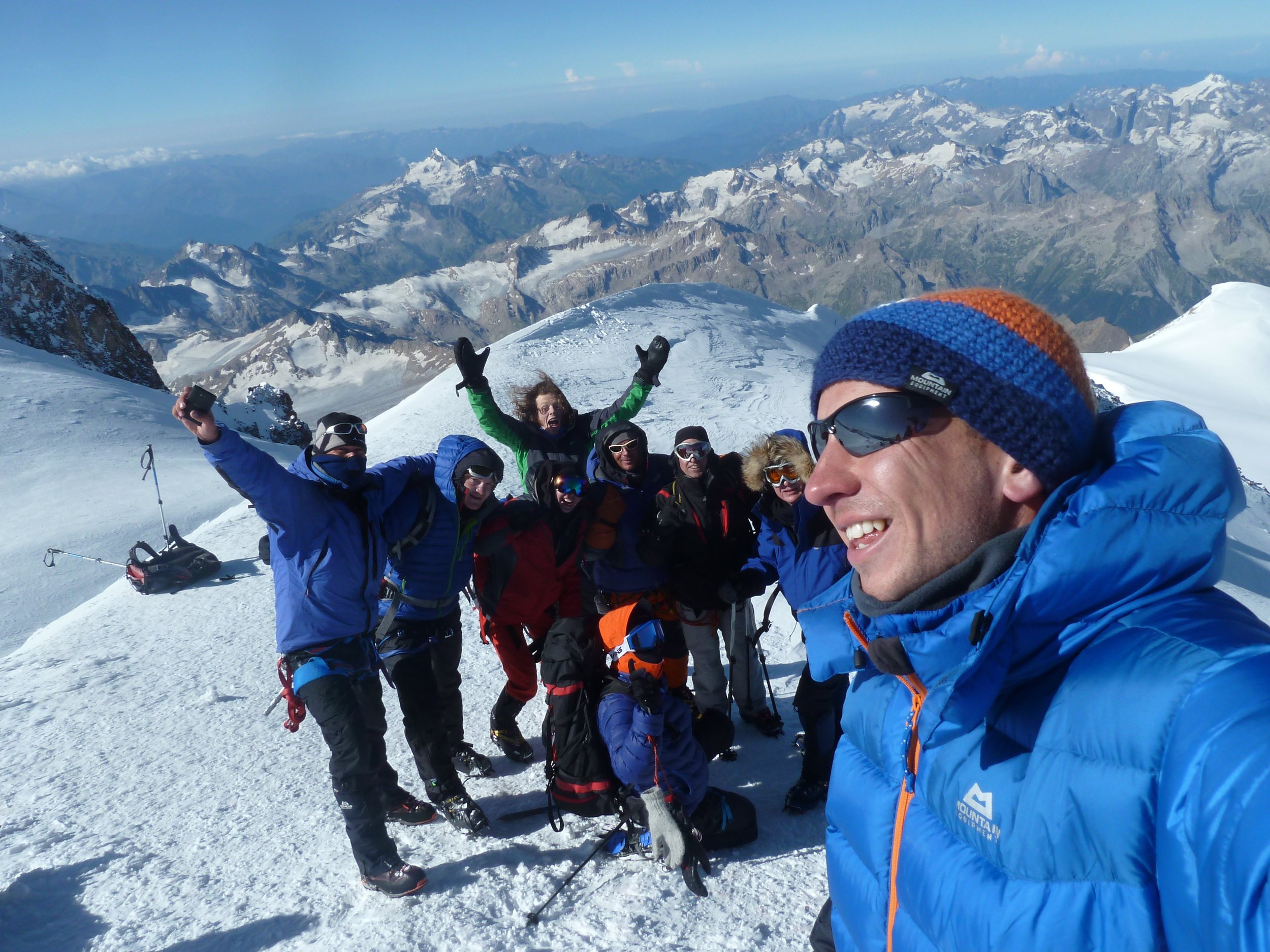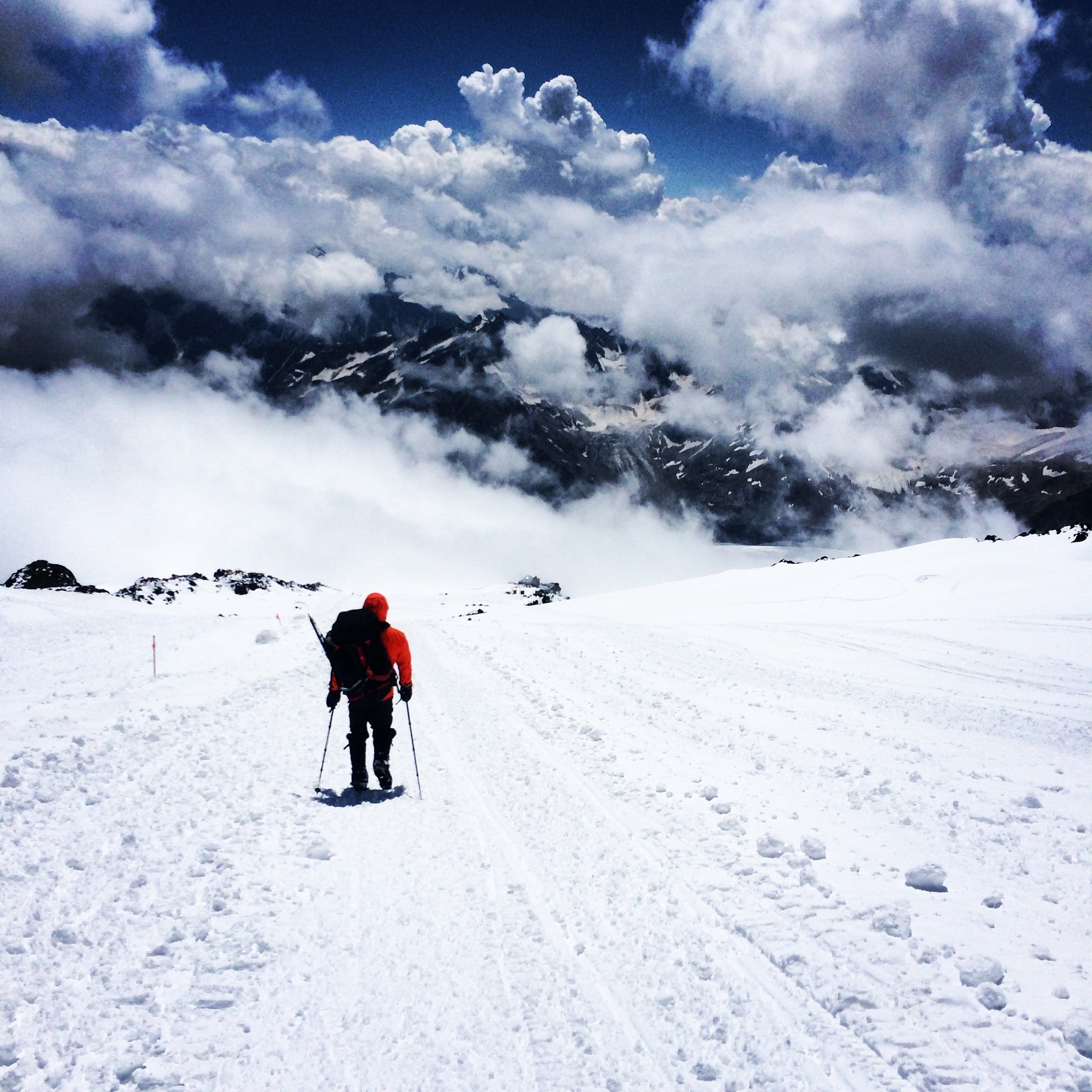Elbrus
5642 meters of fun
Mountain: Elbrus
Altitude: 18,510 ft | 5,642 m
Location: Causasus Mountains, Russia 43.3499° N, 42.4453° EThe phrase “climbing the mountain” sounds like we are planning to conquer it, to prove our dominance, to show who is in charge. But those who have ever attempted a hike higher than 10,000 feet probably know that it’s a much humbling and respectful experience.
The phrase “climbing the mountain” sounds like we are planning to conquer it, to prove our dominance, to show who is in charge. But those who have ever attempted a hike higher than 10,000 feet probably know that it’s a much humbling and respectful experience. After climbing Elbrus this year, I would define mountaineering as “appreciation, humility, and laughter on high altitude”. Yes, laughter too (in fact, lot’s of it).
My first very high mountain was Kilimanjaro in 2013 and right after we have summited I couldn’t wait to get back into my climbing gear. My next opportunity came 10 month later. 12 miles north of the main range of the Greater Caucasus lies the tallest mountain in Europe — Elbrus. And it’s breathtaking. Glance down and you will see lush green valleys. Glance to the sides and you will see the rough peaks of the nearby spiky range. Glance up and you will see two perky white summits gloriously sparkling under the sun. No matter where you look the mountain charms you with contradicting landscapes. While Elbrus is magnificent on a sunny day, it gets quite fearsome during a slight overcast: thunderstorms and blizzards make the mountain truly scary.
Elbrus was a very fast mountain — we have reached the summit in just 3 days. Nevertheless, the summit day really seemed like 3 additional days. On Kilimanjaro during the summit night, when I saw the sunrise after ascending all night, I knew that I made it and the summit is near. On Elbrus, when the sun started rising during the summit day, I knew that the tough part was about to begin, and I was right. Just an hour after the sunrise we faced a steep wall that would take us about 3 hours to climb. The steep ascend required patience and hearing rhythmical clutching of my crampons on fresh snow was creating a painful, but calming zen-like coma.
The last 20 minutes were a gradual climb, but by this point, those minutes felt like infinity. We had reached the point where your muscles stop listening to you and your thoughts slow down, your whole body craving oxygen. But this is when you test your will, your power to shut down the doubt, the force to carry on, the desire to achieve and the thirst to see what’s there on the top. This extreme test of will is part of my attraction to climbing — and one reason I will go back.
But foremost this adventure was for me about the people, incredible, inspiring, funny, kind people. They came all over the world with the hope to stand on top, but in the end they all come to have fun. My teammates were quite an eclectic and manifold group: engineer, ultra-marathon runners, solder, but they were very similar in the way that you can rely on any of them to give you a hand when you twist your ankle or to make you smile even when your face muscles are paralyzed by cold. It’s strange and amusing how in the course of couple of days these strangers evolve into your closest friends and you feel like you know them all your life. And this camaraderie is the only thing that can save you from feeling miserable on an oxygen-deprived steep slope in the middle of the blizzard.
In the end we are not fighting the mountain, we are fighting ourselves: fighting our mind which tells us that it can not be done. (... or that it’s hard, that we are tired, thirsty, hungry, sleepy or whatever other excuses we come up with). Fighting our muscles to perform. Fighting our beliefs to re-evaluate priorities and to enjoy such simple things as a warm shower or a cup of hot water. And if we are successful and the mountain is generous enough, it will open in front of you breathtaking views, give you a piece of mind and new family. Thank you, Elbrus!

